Graham Reid | | 15 min read
You're The King
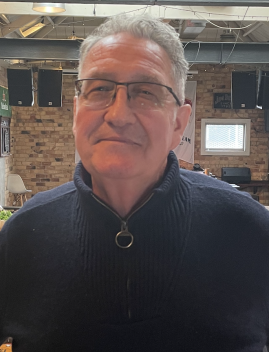
“I don't listen in the same way as most people listen, I listen in a negative way,” says Paul Turney, nursing a lunchtime beer at the Kingslander pub in Auckland.
“I listen as a negative is to a photo. If the negative is good and you develop it properly then the photo is good. I'm always listening out for problems.”
Turney is back in Auckland briefly from his home in picturesque Cirencester, England which sits on a trove of Roman ruins and artefacts. It's a world away from the hi-tech career he has restoring sound and image archives from the likes of Sting and Barbican broadcasts.
In a free-ranging conversation he talks about his music career in New Zealand as he moved through various bands, cities and styles before relocating to Britain where this new career in archiving took hold.
Back there in Britain he does however have a new album out, Thoughts and Prayers, with his band The Human Condition.
It isn't available in New Zealand as we talk, however DRM (Digital Rights Management) is just 10 metres up from the pub's door and so after lunch he goes there to begin a discussion about making it available on digital platforms.*
[It is available now, see below]
But that is now, and this is then. Back to the beginning, and it is dark.
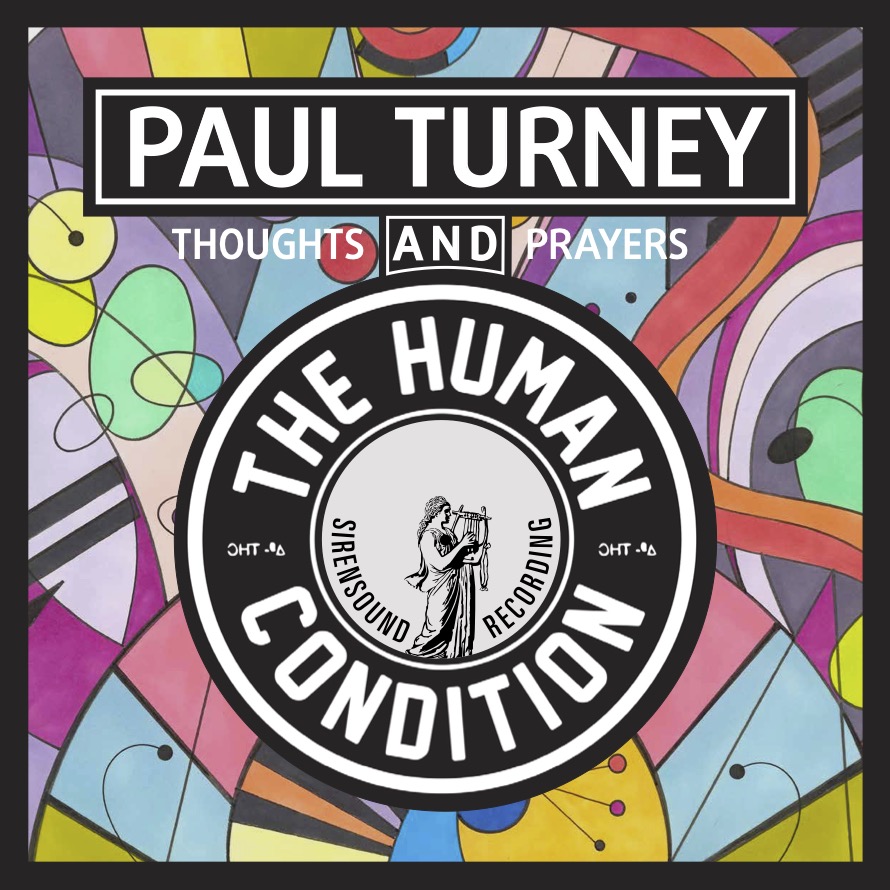 “I started getting in to music at school and I remember I had a very bad experience when my elder brother was killed in Wellington.
“I started getting in to music at school and I remember I had a very bad experience when my elder brother was killed in Wellington.
“There was no support in those days, you'd basically gone to the funeral and then come back and gone straight back into school.
“My younger brothers also got nothing, you just had a cope.
“My [older] brother had gone to Wellington to do pharmacy and they went on a bus trip to a Stoke Valley motor lodge, just to dance and socialise. The bus came back and he was missing. He'd wandered out the back, slipped into a culvert and drowned in two inches of water.
“I was 17 and I remember spending most of my time for the rest of that term in the music room of Sacred Heart College.
“It took a long time for things to improve.”
There was a piano at home but they weren't a musical family, he says. His siblings got the opportunity to play but he was the only one who kept it up.
There was music in the dorms at Sacred Heart College and he studied music on his own, “going through sheet music of what Pete Townshend was doing”.
“It helped alleviate the pain.”
These were the days of Sanyo portable three-in-one tape machines with turntables and the boys were hearing a cross-pollination of that early Seventies music like Traffic and the sound of the American West Coast.
He did his second-year 6th classes at Sacred Heart and final year at Cambridge High, back with his parents, and then the family came to Auckland “and things started changing then”.
His first “band” was with Rikki Morris practicing at the Kohimaramara School hall – “fun but we never played publicly” -- and there was the connection with Th'Dudes and Split Enz.
“My mum and the Finns' mum were good mates from back in the Waikato. Dick Finn and my dad were the unofficial selection panel for every NZ cricket team!”, he laughs.
He watched Split Enz from the sideline and at school he won the same Walter Kirby contest Tim and Mike Chunn had previously.
He must have been better than his modesty allows, because he applied for universities overseas and was accepted by Berklee School of Music in Boston “and the head tutor was Quincy Jones, but I didn't have any support to get there. So didn't go and went to Auckland uni doing law degree”.
“And that was when I quit and joined Flight X-7!”
Flight X-7 arrived in the New Wave era – a dollop of punk but mostly pop-rock – and although frequently dismissed by the more hardcore punk bands, they were popular. Fronted by Jeff Clarkson (who went on to have a hugely successful career in New Age instrumental music) and with guitarist Paul Jamieson, they worked constantly and, despite line-up changes, won fans like Gary Steel who tipped them for greatness for their live showings.
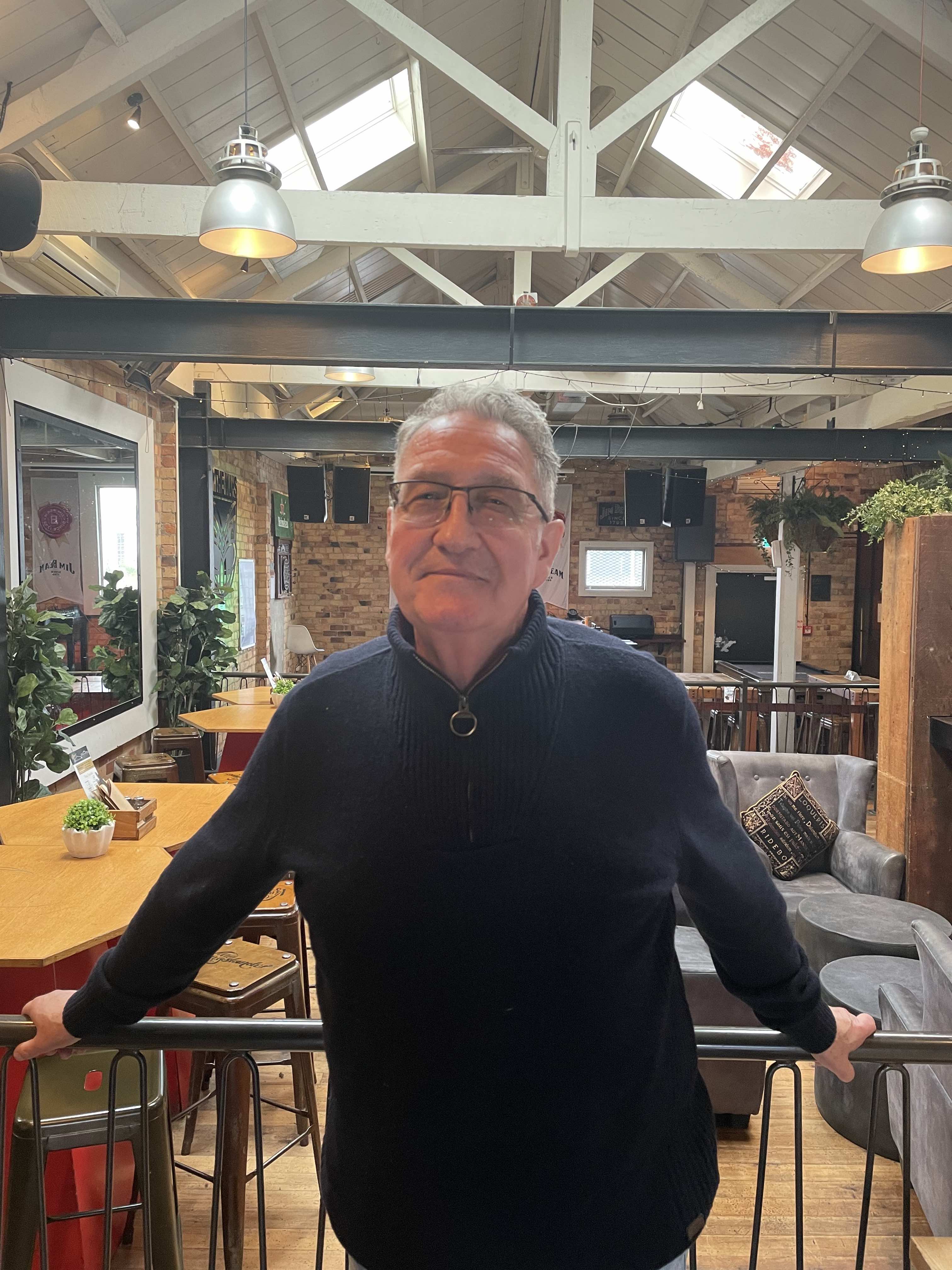 Turney joined in the latter period of their career after Jamieson left. He was 21 and with them for a bit less than two years (others say longer he admits) and “if I was lucky I got $20 a week”.
Turney joined in the latter period of their career after Jamieson left. He was 21 and with them for a bit less than two years (others say longer he admits) and “if I was lucky I got $20 a week”.
“They went for five years through several incarnations, Jeff left and I was part of the next band he put together playing keyboards and played a few of my songs in that.
“But Flight X-7 used fill up halls, it was incredible. We were at Sweetwaters supporting Roxy Music on a Friday night.
“The lighting guy kept telling me I didn't look cool enough so I wore a long white shirt and he came to me afterwards and said, 'You looked really good', the first time he'd ever said anything like that.
“My mum used to make shirts for me and we'd iron on Flight X-7 logos.”
Innocent days.
“We were mirroring a lot of things happening in England like Duran Duran and some Devo influence seeping in from America, apparently. The Bowie band with Roger Powell had a bigger influence on me.”
Enjoyable though?
“I did enjoy it but I just couldn't survive. We were paying off Flight X-7 loans because in those days everyone had to hire their own PA system which would cost $500-$600 a week.
“Jeff did end up with a big debt from the band but, much to his credit, he took it on himself and paid off the loans to hire companies.”
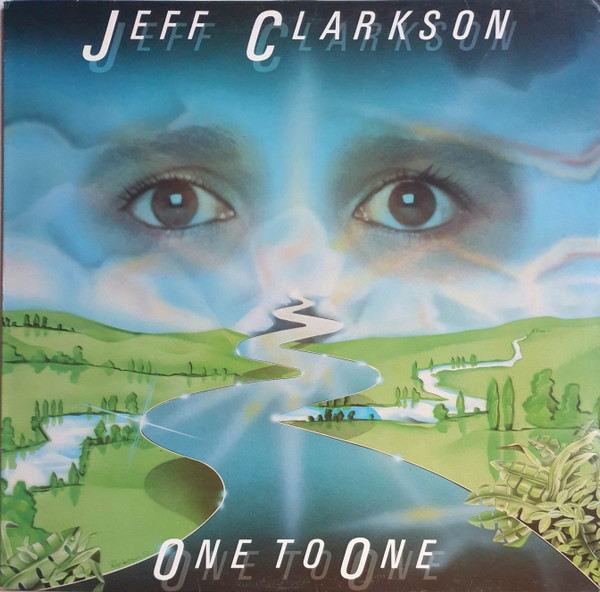 Towards the end of his time his girlfriend wanted him to go to the UK but he wasn't quite ready and got work in a Gisborne studio with Brett Sherriff who was running The Sound Shop “and he asked me to run the studio built by Noel Lamberton, so I was in the studio for six months to learn what I was doing”.
Towards the end of his time his girlfriend wanted him to go to the UK but he wasn't quite ready and got work in a Gisborne studio with Brett Sherriff who was running The Sound Shop “and he asked me to run the studio built by Noel Lamberton, so I was in the studio for six months to learn what I was doing”.
It wasn't entirely unfamiliar territory, Turney had recorded at Harlequin Studios in Auckland: “My own stuff, half a dozen songs and [the late] Tim Murdoch of WEA paid for it. But he lost interest and that's when I ended up going to Gisborne for two years.”
He is clearly delighted when he recalls that period, working with Dalvanius producing Maori bands from up and down the East Coast (“an amazing singer and such a nice guy, I used to love having him in”), the Dance Exponents, among others, popping by . . .
“Then I went to Marmalade in Wellington to join the Body Electric who'd come through Gisborne and they asked if I could come down to play with them. I thought that would be nice but they weren't really ready for what they wanted to do.
“I didn't play a single note with them, didn't have a rehearsal with them, didn't do anything. It was a shame and I bumped into Jeff Clarkson who was recording in Marmalade and he asked if I would help him.
“So I got in there as his engineer and working in the evenings. He was doing rock, the One to One record (1983) which was interesting, it was right in the middle of that big change from real drums to Linn drums so we did a lot of replacing kick drums and snares.”
Turney is credited on the album as a musician in addition to his engineering with Ian Morris.
“I didn't stay in Marmalade for long but I did some restoration work on music from the islands, it was sort of $10 an hour stuff which was quite good back then.
“Just work on fixing up quarter-inch tape and every so often you'd get a click or a bang because they were recording in place where the fridge would come on and send a bang through the recording. So I'd try to musically clear that up and you are using tape and splicing with razor blades.”
Little did he know but such work and his familiarity with technology was paving the way into a new career.
He moved back to Auckland – NZ Rail took all his synths to Cambridge where his younger brothers swooped on them – and did some work with Mike Westgate, who just wrapped up sound on the David Bowie film Merry Christmas Mr Lawrence. He started doing "location sound, recording things at the Town Hall, ballroom dancing and things like that”.
Then came wilderness years: at Cambridge driving trucks, working in his parents' bakery for a few years, helping people set up PAs (“going back to a town you grew up in is probably not a great idea”), then to Mt Maunganui where he and opened a pizza shop and ran it for five years.
“I had a nice time and Roger Jarrett [founder of the pre-Rip It Up street magazine Hot Licks, graphic designer] became a good friend. So I had a lot of fun there.
“But then I came back to Auckland and started a duo with Alistair Riddell, he was playing guitar, singing and programming drums -- he'd programmed drums on Poi E -- and I played keyboards, did backing vocals and supplied the PA.
“We would draw a nice crowd, we were called Big Red Car and played around the traps: Auckland, Hamilton, Bay of Plenty . . .
“That lasted a couple of years and I liked working with him, he was such a major talent and he had Out in the Street and we'd do our own take on alternative rock covers.”
When Riddell became a dad and performing kept him away from family Big Red Car reached their natural end. Turney moved on again and in '95 he – now close to his mid Thirties – arrived in the UK with a bunch of his own recordings which he took to EMI “who lost my disc, I never saw it again. And in those days it cost about $200 to get a disc made”.
He did construction work, lived in Camden Town during the Britpop explosion, was pulled into a football team which was mostly music industry people, Blur's Damon Albarn and their producer Steven Street . . .
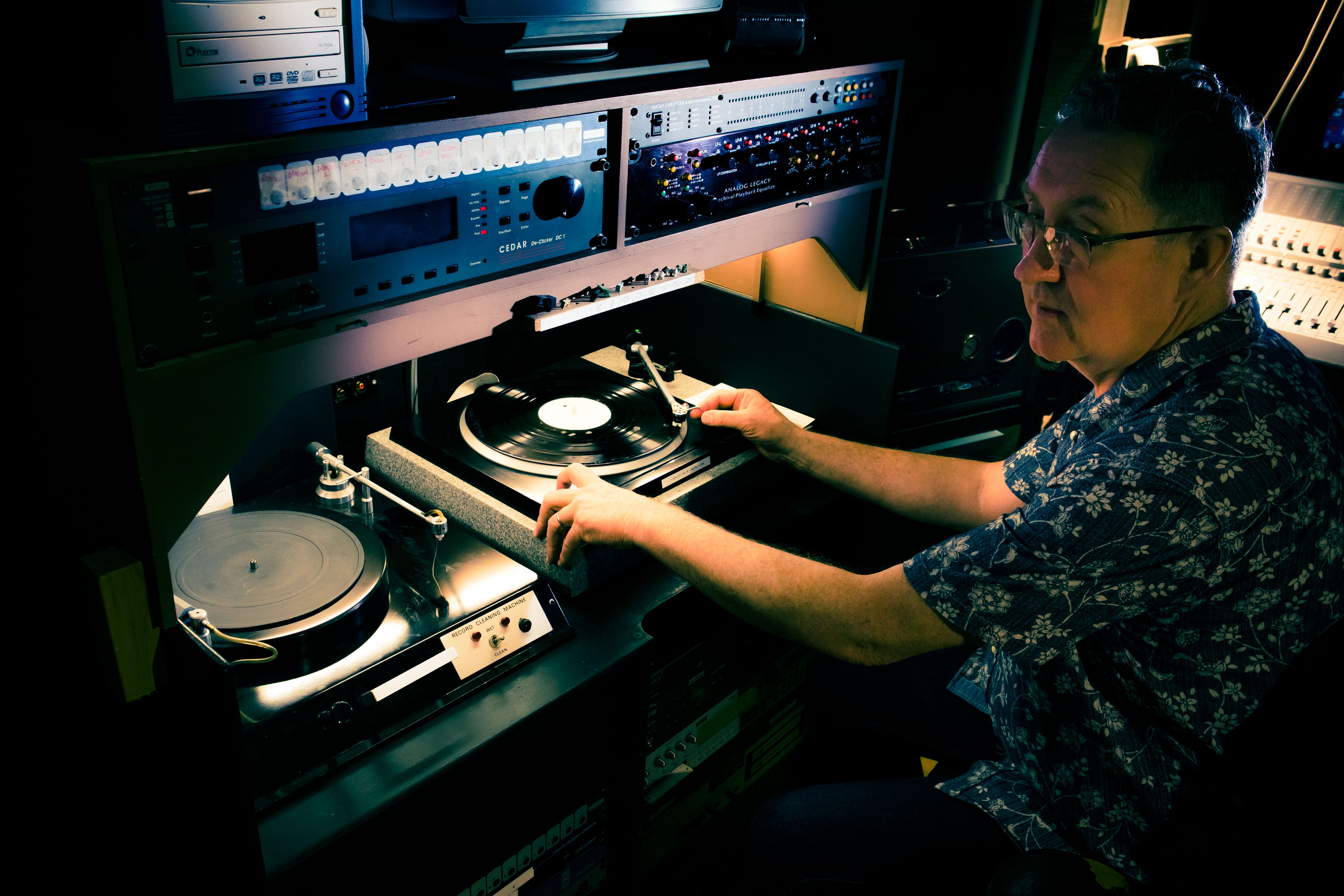 But it was more by accident than any coherent plan which was the bridge into his current career in archiving.
But it was more by accident than any coherent plan which was the bridge into his current career in archiving.
He met Murray Harris who worked for Dick James Music, was involved in mastering and had his own studio with Simon Hayworth who had co-produced Mike Oldfield's Tubular Bells.
He kept asking Harris if there was work for him and one day got the call: “He said, 'come in here' but he'd told everybody I was a pizza delivery driver. What they wanted was someone who was cheap to hire”.
“They asked what sort of work I could do and I said, 'whatever you give me' and so I started in the tape room winding tapes of different lengths to duplicate cassette tapes to distribute around record companies.
“Then Murray asked if I'd like to look at this other job. Simon was there as well, and they asked, 'do you think you can do this?'. It was an archiving job of all the live broadcast performances recorded at the Barbican. It was a massive trunk full of DATs and they all had to be turned into CDs because they were dying on them.
“I had real-time CD recorders and started working with those. You knew what it was but I had to make a new log sheet for every single recording, an A4 page for each one.
“I did 2000 of those for the Music Performance Research Centre which was basically the Barbican, it's all in the Barbican archive called Music Preserved.
“Eventually Jon Tolanski who was administering the project for the MPRC took them to the BBC and they were very impressed, so John put my name forward to the BBC Archives.
“The next thing I knew was the British Library Sound Archives were advertising for people and they rang me and asked if I'd mind applying. So I applied. It was a European contract which are enormously complex but I did it and applied as Paul Turney Recording because they wanted me to start a company and be an entity. So I did that . . . and was unsuccessful.
“I failed at the first hurdle!”
His bid had been too high so he discussed options with the Archive, suggested they request an increase in their budget. They did and got more money and now had to spend it. Which is where Paul Turney Recording came back into play.
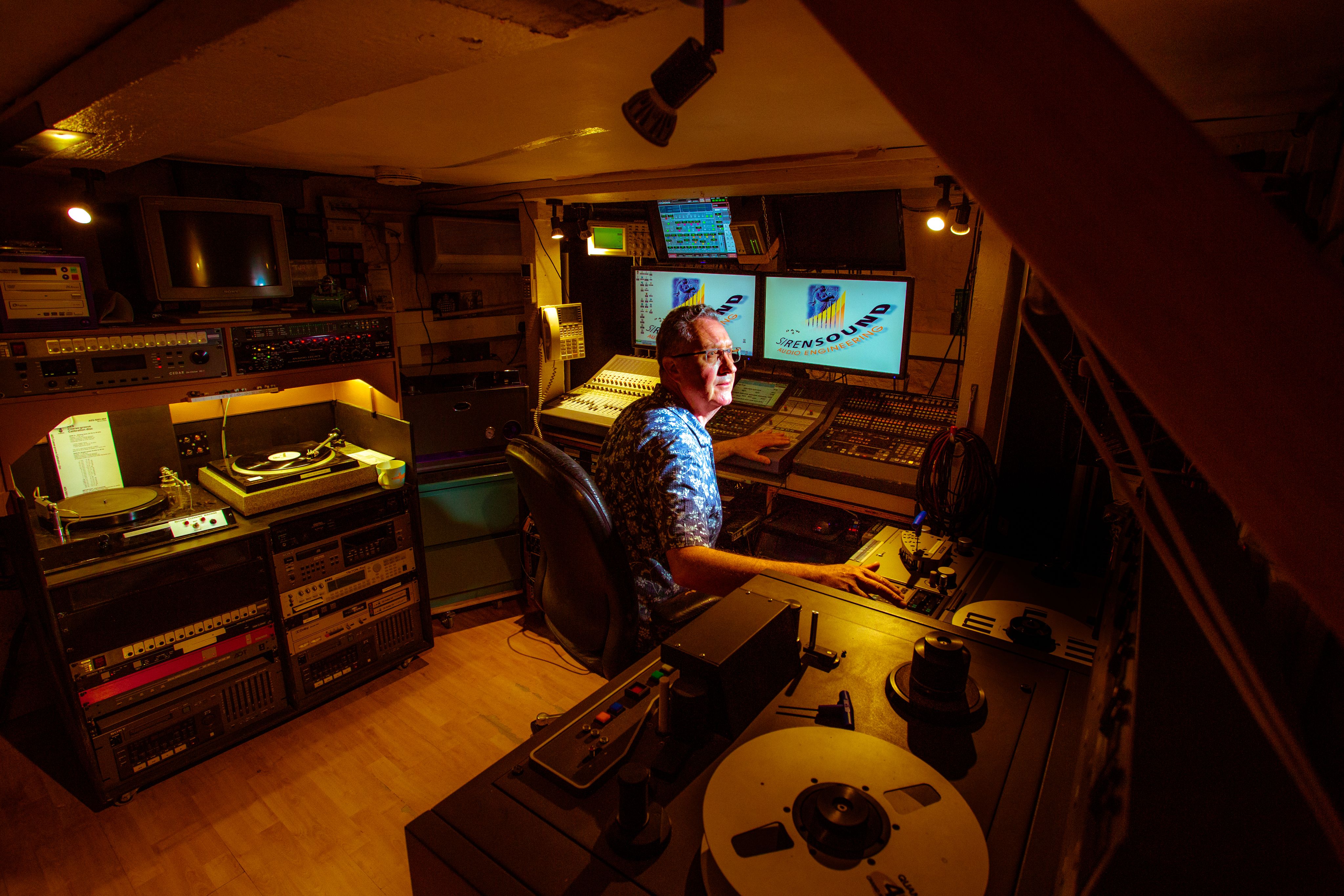 At this time his doctor wife – they'd married in '97 – needed to be close to the hospital in Swindon so they, with two small daughters, moved to Cirencester and he became an external contractor for the British Library recordings of BBC Radio 3 and 4's recording of classical concerts.
At this time his doctor wife – they'd married in '97 – needed to be close to the hospital in Swindon so they, with two small daughters, moved to Cirencester and he became an external contractor for the British Library recordings of BBC Radio 3 and 4's recording of classical concerts.
He did that for eight years, invested in technology and suddenly it was all over because they built their own archive.
“But they did give me a really nice reference,” he says wryly.
However the work came from other sources: the Krishnamurti Archive, and notably the IRA and IRB archive from Ireland from the Cardinal Tomás Ó Fiaich Library & Archive in Armagh.
“They had a large bunch of analog open reel tapes, interviews done by a parish priest Father Louis O'Kane, so it was almost like being in a confessional: family members, widows of those who had been executed or had been involved [in the IRA] and hadn't been caught. There were a lot of interviews being done because of the 2012 centenary of the Easter Uprising so I did quite a few of those before they were needed.
“I had to listen to them.”
Interesting no doubt.
“Yes, but I don't listen in the same way as most people listen. I listen in a negative way. As a negative is to a photo. If the negative is good and you develop it properly then the photo is good. I'm always listening out for problems.
“I did all their stuff, they were very nice people but they also recommended me to RTE, the Irish broadcaster, so another European contract went out for all the 10 and 12 inch recordings and a handful of 16 inch lacquers. There were 4500 to 5000. I did for them, that's about 10,000 sides.”
And along the way in 2012 Sting's analog video archive, which were huge files.
Then of course there is his album with the Human Condition, a kind of second-tier supergroup of friends and acquaintances which include guitarist Tim Canfield who was in the Bee Gees' touring band for years and has worked with Seal and Elton John.
Turney was invited to put together a band to open for Phil Collins but it turned out the idea came from “a fabulist, so I apologised to the band but Tim said, 'let's look at your stuff”.
With Iain Ballany, a sax player he picked up on while working on the archives of Karnataka (Indian), an excellent drummer Richard Bailey (Johnny Nash, Bob Marley, Jeff Beck, Steve Winwood) and John McKenzie (Eurythmics) on bass.
When McKenzie got ill Guy Pratt (Icehouse, Pink Floyd, Saucerful) played on four songs and then Winston Blissett (Massive Attack) came in and has played bass since.
They started recording and the session went from his raw demos “sounding okay, and turned into something rather marvellous and to something special”.
He notes also others he works with in the band: "Dan Holley, I've known him since he was 18, who interprets my singing with his amazing voice, an actor and singer currently in Phantom at the West End in London.
"Beverley Skeete, a singer with Annie Lennox, Elton John and Bill Wyman. Bev does backing vocals adding a rich soulful sound into the mix. And there's Patsy Gamble on saxophone, everything she plays is a first take and showcases her vibrant talent in improvisational playing on many of the tracks.
“Through the archiving connections you become friends with these people and if they are strong they stay connected.”
So the album Thoughts and Prayers emerged, credited to Paul Turney and the Human Condition. He is credited with music, lyrics and piano, and as producer and mixing (in his Sirensound studio).
Turney admits he's pretty slack about getting the music out there: it has appeared on vinyl and CD in the UK but not digitally. He'll stop off at DRM after the lunch.
At this time however when he gets home he is wading through the National Folklore Collection of Ireland.
“It's massive, it's a lot of jigs and reels and of course a lot of it is in the Irish language. I have to make it sound as authentic as I can, which I do. That's all coming off 10, 12 and 16 inch lacquers and they are all one-off, the only recordings of those songs done in real time at the time.
“There would 1700 – 1800 of those. So that's been keeping me quite busy lately.”
But the album of which he is understandably proud? We go back to the beginning in some ways.
“There is a Kiwi connections on the album. The song Zig Zag Road refers to where I grew up in Cambridge and back then it was a metal road so you could do wheelies there.
“So it's a song about that, but it's also a memorial to my brother as well.”
.
Do you remember long ago?
We made our way down Zig Zag Road
Heard the tales of chivalry not a secret society
Stories were dear to us, put on display
Admired and made a fuss
In the autumn, leaves would fall on us
Confortare esto vir would be
On the coat of arms reminding me
To be a man takes courage if you fall
You could lose it all - turning round I stumbled down
All the little stones on Zig Zag Road
The icy road, the morning light
The fading dream, the after life
Fought for our survival from the cradle to the grave
The Central Bar at closing time
The railway line, the fireside
All the little stones on Zig Zag Road
I remember 20 Victoria Road
We were up before the dawn the sky was chrome
And the winding road was like a second home
All the little stones on Zig Zag Road
{all the little stones I will follow home)
And I remember long ago
We made our way down Zig Zag Road
Stories were dear to us, put on display
Admired and made a fuss
In the autumn leaves would fall on us
We all went up to Sanitorium Hill
Looked out at the valley below
Beside the ruin of the Sanitorium
You could see Maungatautari, and Hicks' place
All the little stones on Zig Zag Road
(all the little stones I will follow home)
credits
Main vocal: Daniel Holley
BV's: Hayley Capp, Beverley Skeete
Drums: Richard Bailey
Bass: John McKenzie
Guitars: Tim Cansfield
Saxophone: Patsy Gamble
Keyboards: Paul Turney
* Paul Turney and the Human Condition album Thoughts and Prayers is available now through bandcamp here
.


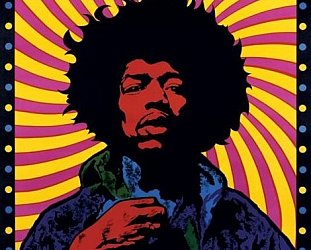
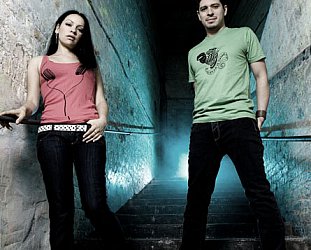
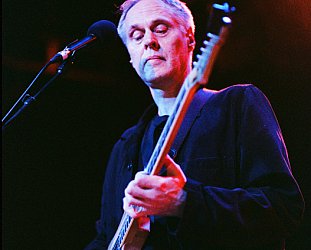
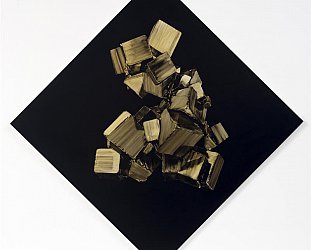
post a comment